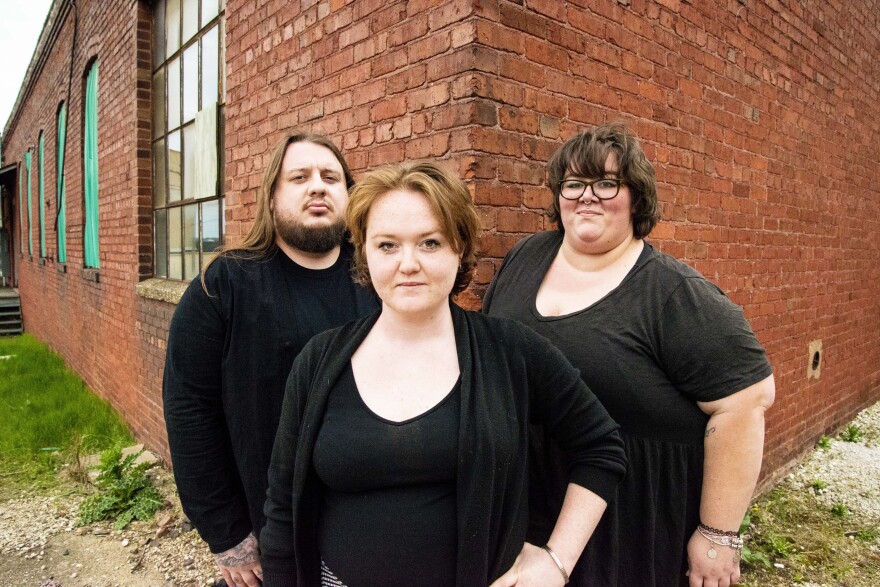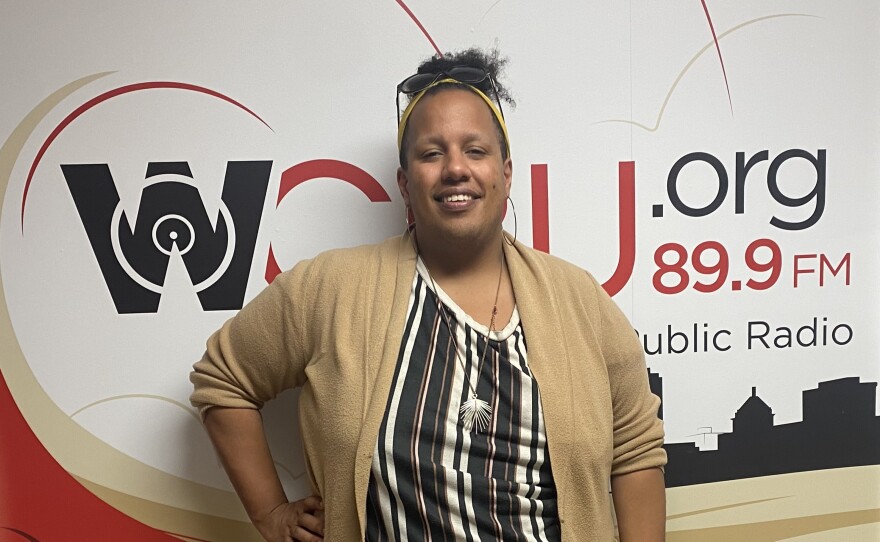If you live in the Tri-County area, you've heard of the famous question: “Will it play in Peoria?” The question, originating in the early 1920’s during the vaudeville era, was used to measure the popularity of certain products, ideas, and art forms — essentially meaning that if something took off in Peoria, other people around the nation were sure to like it, too.
The main reason Peoria was used as a testing ground is because of the city's demographics. Peoria was known for being incredibly diverse in many ways, from different races and ethnicities, to varying socioeconomic statuses and education levels. This would give product developers and artists a good idea of how all different types of people would respond to their work.
Today, Peoria is still a place buzzing with an expansive arts community, and a variety of people that both support and are at the forefront of galleries, theaters, event venues, live music, poetry readings, stand-up comedy, open mics, and so much more.
However, as the community expands and changes, especially through the aftermath of COVID-19 that took a toll on a significant number of artists and their organizations, many are questioning if the art that is being widely displayed, performed, published, and viewed is actually representative of the city's rich diversity — or if barriers have been preventing those artists from breaking through the noise and establishing themselves in the community.
Alexander Martin is a visual artist and performer in Peoria. They also are one of the founding members of the Peoria Guild of Black Artists (PGOBA), which Martin says was founded right after the murders of George Floyd and Breonna Taylor.
“We’re tired of only getting together when we’re showing at Black History Month or other spaces like that, so it was nice to get together, grieve, share our shared experiences, and then work together to make work, and we’ve been doing that since 2020…It started off and we’re hoping to always keep that core of a space to support and uplift each other, and for those of us who are OK with…being more vocal about our experiences, sharing that with the public and educating folks on what…equity in the arts looks like, what actually representing voices who we’ve overlooked looks like,” said Martin.
As a Black trans individual, Martin said it's disheartening as an artist to enter a space and not see anyone who looks like you. While PGOBA is one way Peorians have rallied to change the narrative and provide space to artists who are fighting for representation in all arts spaces, there are other area organizations doing similar ground work.
Our House Entertainment is a business located in the warehouse district of Peoria at 1101 SW Washington St., focused on uplifting diverse artists from all backgrounds, whether it's race, socioeconomic status, gender, sexuality, educational background, etc., and featuring them through live music and visual arts shows either at its own location known as The Mill, or at Peoria Pizza Works.

The shows are free for the artist and bands to attend, with the musical acts getting paid from the proceeds collected at the door. Seth Kehres does the audio and visual production for Our House, and has been a musician in Peoria since 2012. He said when he first began playing music in Peoria, breaking out was incredibly difficult because he felt like he didn’t fit a certain type of mold. That’s why he said the effort to include all genres through the shows at Our House is so important.
“We try really hard to book shows that are going to have people of all ages, where we try to have multi genres, where people get the ability to play their first show with bands that have played dozens if not hundreds of shows…and get access to things when I started in the music scene I didn’t have,” explained Kehres.
Alyssa McMillen is the owner of Our House Entertainment and a photographer. The ideology of helping the artists who come after you and providing them with a leg up is a big tenet of the work Our House does, and McMillen said many of the artists she seeks out are incredibly talented, but may not always be 100% confident in themselves.
“When I ask them to come to an event, they’re surprised… and that’s what we do it for. Once they come to events, they keep coming to events, they network with other artists, that confidence rises, and they keep working…that's where the struggle comes for Peoria is that we’re filling that gap where we didn’t feel like there was a place where we could continue to thrive, or to feel safe in being a novice artist, or being an up-and-coming artist,” said McMillen.

Providing a safe space for artists still in the early stages of navigating a very difficult, sometimes discouraging career provides critical encouragement for artists to keep creating work that is meaningful to them. Destinee Wilson, the organizational assistant for Our House, said there is an unintentional gatekeeping in Peoria that hinders a lot of artists from making their mark here.
“They’re not part of an artist program, they’re not going to school for art, or they just don’t have access to those things just based on not having enough money to do so…I find that there are some events when you walk in and everyone is suit and tie, and everything is very clean and there are canapes...not to say that those things are bad, there’s nothing wrong with that, it’s just less accessible for people who are unable to do those things,” explained Wilson.
Economic diversity within the arts in Peoria is struggling at the moment. There seems to be a certain understanding around many art communities that art is only good or deserving to be seen if it is expensive, is produced by a well known artist, is shown in a fancy gallery, or qualifies under the category of fine art.
Our House, as well as other organizations, are trying to break down this misconception, and show that you don’t need to have a college education, use expensive tools or equipment, or pay expensive entrance fees to be taken seriously as an artist. This is why McMillen also looks for artists who make their art using tools that are accessible to everyone, such as a ballpoint pen.
Kehres said musicians also get judged for the equipment they use.
“It shouldn’t matter the tool that you’re using…musicians get judged a lot where you can’t use a small little digital amplifier…you have to use some tube amp, or it has to be a guitar that’s made with specific woods…a lot of things that honestly don’t matter. If this is what you have access to and you can create something that’s going to make you feel like the person that you are and be able to tell your story…there’s no difference between using a $20 amp or using a $4,000 amp, you’re still getting to be a creator and have an impact on the people around you.”
The Buncha Bastards, an acoustic folk duo from Peoria, are familiar with this type of genre and equipment discrimination. Led by Nick Lee and Sara Klemm, the band features just one guitar, and plays quiet, sometimes wonderfully painful melodies that capture what it’s like to love, lose, and then do it all over again. Lee said when they first started making music in Peoria, many other bands didn’t want to play with them — simply because they sang folk music.

“It was really tough to get people familiar with what we’re doing and to get audiences around here to be like oh, this is good, too, in addition to the other stuff. We’ve maybe been more welcome in some other scenes that we’ve traveled to, but over time it’s really been embraced,” said Lee.
The duo said organizations like Our House were key in providing them with exposure to introduce the genre to audiences in central Illinois. Now, the pair said the amount of support they get is overwhelming, and that the music community in Peoria has everyone’s back.
“I don’t know anybody who doesn’t support the next guy…we’ll have friends in other bands who shout us out all the time,” said Klemm.
In addition to having artists support each other, the audiences and crowds that gather at these music and arts events play a huge part.
“Our crowds, our following, the people that show up to these events…they’re the supportive ones. People go on stage very nervous, it’s their first show…it’s when they hop off the stage, you can tell. You can tell they’ve been showered with recognition, with applause, and now they’re proud, and that’s the most important part,” said McMillen.
While the music scene in Peoria, as well as organizations like PGOBA and Our House all show promising strides and efforts in the right direction to making the arts community a more financially viable and equitable place for people of all backgrounds, there’s still work to be done to ensure the arts are truly representative of all the artists who live and work here here.
People’s pockets are tight, and according to Alexander Martin. It's not solely up to the artists themselves to keep fighting for this representation. They said while making the arts more diverse is the responsibility of everyone, that responsibility is weighted.
“If you have more say or more power, utilize that," said Martin. "Folks making decisions, folks representing artists in galleries, folks funding the arts, you have more power and say than the artists, so I look towards those folks when making decisions, but also on other artists. Even if you aren’t part of a certain population, advocating for your comrades in the arts to have their voices represented…turning down a space that has a bad history or damaging history with certain populations, because folks pay attention.”
While the community will always benefit from more organizations opening their doors and seeking out artists who may have been overlooked in the past, it would be remiss to not mention all the organizations doing their part now in central Illinois.
“Activator Magazine in Springfield, they do a fantastic job of showcasing any and all artists of every walk of life…They have this program they’ve been doing lately about Black Artists Matter, and we really respect them,” said McMillen.
“ArtsPartners is big on advertising the arts that are happening in the community. ART Inc. works with students in Peoria and really gives them a foundation for making art and how to market themselves,” added Wilson.
The heavy lifting of these organizations, as well as many others within the Peoria area community, is paving the way for all artists to feel respected, welcomed, and heard.
Alexander Martin remains hopeful as to what the future of Peoria may bring, saying, “I feel a shift coming. There’s more and more people doing things for themselves and making spaces to be heard…we’re going to get a truer image of what the arts in our city looks like.”
Find more information on Alexander Martin here. To follow upcoming shows and the Our House Team, visit their Instagram page. To keep up with The Buncha Bastards and their sophomore album that’s currently in the works, go to their Facebook page.





